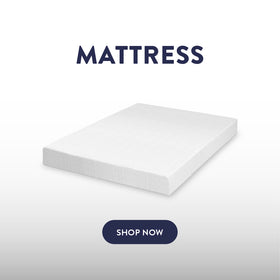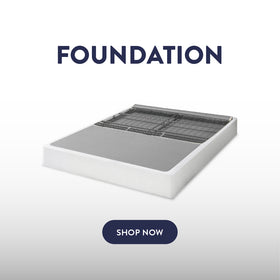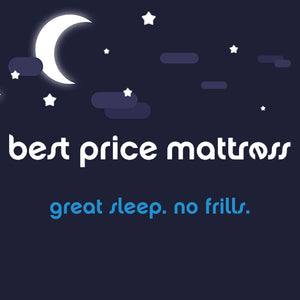FAQ
Q. Does a mattress in a box really deliver a comfortable sleep experience?
As of today, millions of people have already used this revolutionary, patent-pending process to get a better night’s sleep, conveniently delivered to their door. Each mattress is compressed one time and engineered to open perfectly at your home in a matter of minutes.
Q. How long do I need to wait for the mattress to recover after it is unpacked?
Once the sealed bag is opened, the mattress will rise quickly. Upon opening, the mattress will recover 80% to 90% and the rest will take about 1 to 3 days to inflate completely. However, you can still use the mattress right away. You may also notice some wrinkles and rounded corners, which will go away after a few days.
Q. What is the scent coming from my new mattress?
We strive to make each of our products as comfortable as possible. While each product has a unique scent, it is completely harmless and will dissipate over the course of a few days from removal of its packaging. If your product has a strong scent, it is recommended that you remove any outer bedding or covering and allow it to air out, providing adequate ventilation where possible. One of the ways you can decrease the smell is by walking on the entire surface of the bed. As your feet push down into the mattress, any remaining odor should be released. We also suggest having an open window as you do this.
Q. How can you offer FREE SHIPPING on such large mattresses?
Our amazing compression technology allows us to make our mattresses fit into FedEx approved shipping boxes. So, it’s a whole lot easier for us to ship our mattresses to you than other mattress stores.
Q. How do you make your products fire resistant?
We have invented a system utilizing non-toxic fire barrier agents that make our mattresses compliant to strict federal regulations for flammability standards.
Q. Your beds are compressed into a box. Doesn't that damage them?
On the contrary, it is a real testament to the design and durability of our products. Our beds are able to withstand the pressure and manipulation of the packaging process and spring up to provide a great night’s sleep, every time.
Q. What do I do if I need assembly parts?
If you believe your product has damaged parts that qualify for warranty, please email us at support@bpmatt.com or call 1 (800) 383-2230.
Q. What is memory foam?
Memory foam is a polyurethane based foam that contours to the shape of your body while you sleep. The foam has open cells, meaning that air can pass into and out of tiny holes in the material. It is valued for its unique pressure reducing properties and is currently used in countless applications from memory foam overlays to car seats.
Q. What can memory foam do for my health?
Memory foam is one of the healthiest sleep surfaces ever created, mainly because of its incredible ability to reduce pressure points. A high-quality memory foam mattress overlay has the ability to improve one’s quality of sleep, alleviate back pain, improve circulation and may even help with some types of sleeping disorders like sleep apnea.
Q. Is there a perfect density for memory foam?
There is no single perfect density for memory foam products. Generally, higher density foams are usually better, but there are many variables to consider. For example, with a memory foam mattress overlay, proper density will be determined partially by the thickness of the overlay. With a 2-inch overlay, a density of five pounds works best, but with a 3-inch overlay, a lower density would be preferable.
Q. Is there an ideal thickness for a memory foam mattress overlay?
There is no one ideal thickness for a memory foam mattress overlay. Choosing the right thickness will depend on many different factors including sleep positioning, activity level during sleep, mattress condition and firmness preferences.
Q. Doesn't memory foam fall apart quickly?
Like many of the misconceptions surrounding memory foam, this one stems from early problems with the formula, which have since been perfected. Memory foam used to be notorious for flaking apart and collapsing after only a short period of time. In fact, when NASA first developed memory foam in the 1970’s, the lack of durability was one of the reasons why it was initially rejected for the space program. Much has changed since the 70’s (think platform shoes, for example), and memory foam is no exception. Today’s high-end memory foam mattress overlays routinely last ten years with consistent daily use.
Q. Does the mattress affect how a person sleeps?
Yes. A mattress has the potential to either encourage sleep or rob you of sleep. Whether your mattress is a sleep friend or foe can determine how refreshed you feel in the morning. If you’re tossing and turning more at night or waking up feeling stiff or sore, it could be a sign that your current mattress is no longer the best for you. Your body appreciates a comfortable, supportive mattress and will let you know if it’s not up to the task.
Q. How can you sell such a high-quality mattress for such a low price?
The reality is that high-quality materials that go into a mattress all cost about the same no matter where they are made. What drives up the cost of a mattress are extra people that get involved in the selling and distribution process. Most mattresses sold today get handled by SEVERAL different middlemen, who each add extra costs along the way. We’ve taken out many layers so that you can pay factory-direct prices. We also use a revolutionary process of getting our mattresses from the factory to your home in one simple box that creates the most efficient shipping method, while saving your money.
Q. How can you tell when a mattress is used up?
Your body should tell you when it’s time for a new one – but you'll only know if you pay attention. If you regularly wake up feeling stiff and sore or if you aren’t sleeping as well as you did a year ago, it may be time to replace what you’re sleeping on. At least twice a year, check for visible signs of wear and tear and ask yourself if you’re sleeping better or worse than before and if a new mattress might improve your sleep. This regular sleep check-up will help ensure your mattress is still doing its job.
Q. What should people look for in a new mattress?
Four keys to keep in mind are support, comfort, space and matching sets. The mattress that’s right for you will keep your spine in proper alignment – how your spine is when it’s in good standing posture – supporting your body and cradling it along its curves. The right mattress will also be comfortable for your body. Keep in mind that your comfort preferences are likely to change as you age. Make sure the mattress provides enough space for easy, free movement. Couples should sleep on a queen or king size mattress. And keep in mind that a mattress and foundation are designed to work together. Buy them as a set and get the most out of your investment in yourself.
Q. How often should mattresses be replaced? How long do they last?
Mattresses wear out on different timetables. This is due to numerous factors such as how the mattress was used (guest room, master bedroom, doubled as a trampoline for the kids), whether it was cared for properly and/or the quality of the mattress itself. Other important considerations are how personal comfort levels or a person’s lifestyle and body may have changed over the years. We encourage you to think about these things and ask you the following questions: Are you sleeping better or worse than you did a year ago? Are you waking up feeling stiff and sore? Does your mattress have visible signs of wear and tear? Would a new mattress improve your sleep? If the answer is “yes” to any of these questions, then it’s time to consider purchasing a new mattress. And because people tend to overlook their mattresses, we recommend that you “check” your mattress using these four questions on a regular basis – at least twice a year – to make sure mattress wear and tear isn’t sneaking up on you and disrupting your sleep.
Q. How much money should be spent on a mattress?
Your rest – the amount and quality of your sleep – is a critical factor in your overall well-being. It can affect how you feel physically and mentally, as well as your productivity. Accordingly, we urge you to invest in your rest, and spend enough on a mattress to ensure that your individual comfort and support needs are being met. Be sure not to shortchange yourself out of a good, quality night’s sleep and buy the best mattress you can afford.
Q. What is CertiPUR-US® certified foam?
When you see the CertiPUR-US® seal, you can be confident that the flexible polyurethane foam inside has been rigorously tested and certified by an accredited laboratory to meet specific criteria for physical performance, content, indoor emissions, and environmental stewardship. CertiPUR-US® approved foams are low emission (VOCs) for indoor air quality and made without prohibited phthalates, ozone depleters (no CFCs), mercury, lead or heavy metals, formaldehyde and PBDEs.
Q. What is the difference between our mattresses and higher priced competitors, besides the fact that we cut out so many middlemen? Their mattresses aren't better at all?
We have the same quality mattresses. The only difference is the price.
Q. Is memory foam better than a spring mattress?
Memory foam and spring are two different comfort selections. It depends on the individual's preference on what they would like to sleep on.





